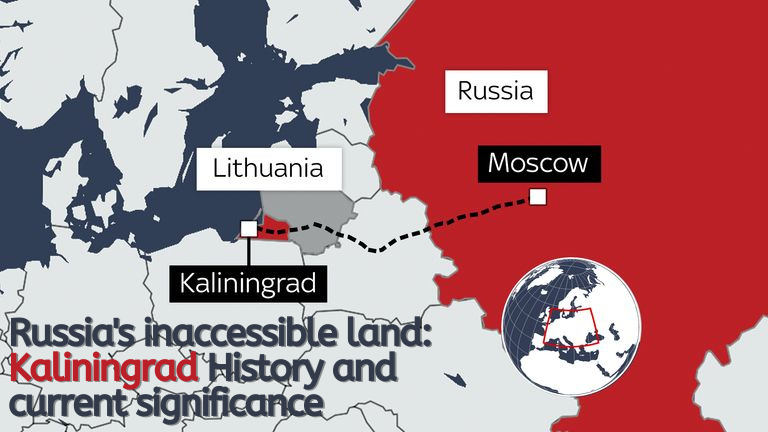
In June 2022, Lithuania announced tight restrictions on goods crossing to Kaliningrad, a chunk of Russian territory wedged between itself and Poland. Furious at the move, Moscow has pledged to retaliate; sparking fears of a showdown between Russia and the West. So, what exactly happened? What can Moscow do about it? And what might this mean for Russia's increasingly isolated exclave.
Enclaves and exclaves are a fascinating feature of international relations. While we tend to think of countries as single geographical units, this isn't always the case. Sometimes parts of a state can be separated by another country. When one part is surrounded by the other state, it's known as an enclave. Where it borders two or more other countries, it's an exclave. And where a coastline exists, it becomes a semi-enclave or semi-exclave. Prominent examples of each include Llivia, a Spanish enclave in France; Nakhchivan, Azerbaijan's exclave between Armenia, Iran and Turkey; Alaska, a semi-enclave of the United States neighbouring Canada; and Cabinda, an Angolan semi-exclave between the Republic of the Congo and the Democratic Republic of the Congo.
Obviously, this raises questions about the transport links between the two parts. When the relationship with the other state is good, there will usually be few problems regarding road, rail and air transit. However, if relations are bad - or if the countries are in conflict - this can have a very serious effect. Indeed, direct access may even be prevented; as happened between Azerbaijan and Nakhchivan. Perhaps the most important current example is the link between Russia and its semi-exclave of Kaliningrad. This came to international attention when Lithuania announced restrictions on Russian goods crossing its territory as part of a wider package of EU sanctions on Russia following its invasion of Ukraine. But what exactly is the issue all about?
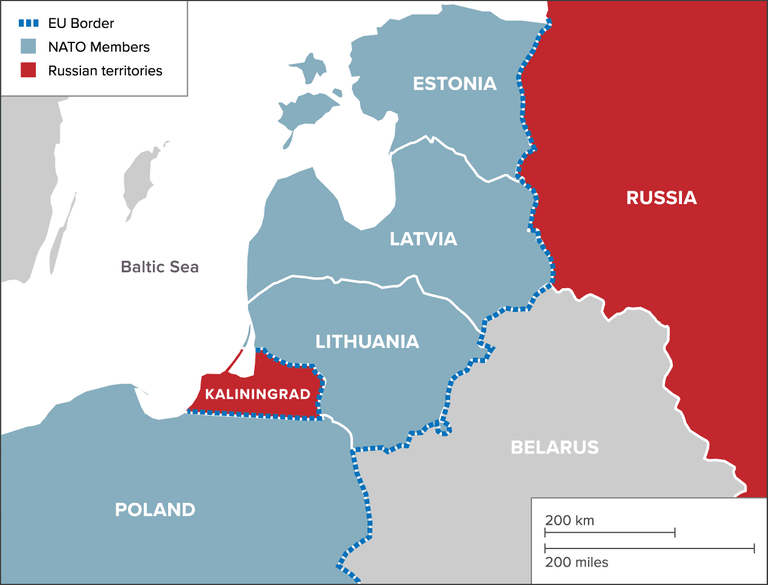
The region of Kaliningrad lies at the furthest western end of the Russian Federation. Separated from Russia, to its north and east lies Lithuania and to its south is Poland. To its west is the Baltic Sea. The nearest Russian territory lies over 300 kilometres to its northeast. Moreover, any land transit to Russia requires crossing at least two other countries. At around 15,000 square kilometres, or 5,800 square miles, as an independent state Kaliningrad would be the 154th largest member of the United Nations. The population of the territory, which is made up of Kaliningrad city, as well as other towns and villages, is believed to be a little over one million. Of this, around 86% are ethnic Russians, with Ukrainians and Belarusians making up a further seven percent.
Although Kaliningrad is now part of the Russian Federation, its ties to Russia are in fact relatively recent. Its history is usually traced back to 1255, when the Teutonic Knights a medieval German crusader order established a fortress on the Baltic Sea, naming it in honour of the King, or König, of Bohemia. Over the centuries that followed, Konigsberg steadily grew in importance, becoming a part of the Hanseatic League a Baltic trading confederation and the residence of the Master of the Teutonic Knights. However, in 1525, the 37th master converted to protestantism and was made the Duke of Prussia, a vassal of the King of Poland.
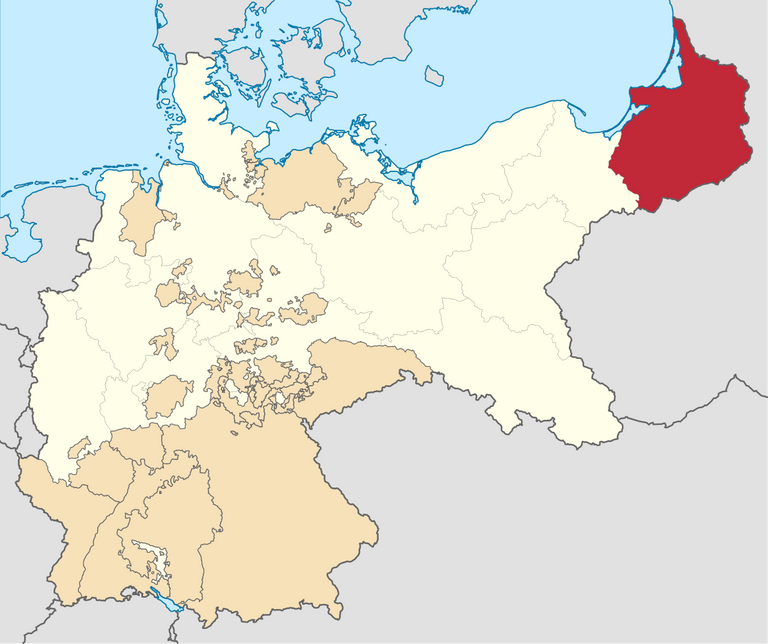
Konigsberg would remain the Prussian capital for the next 200 years, until, in 1701, the now increasingly powerful Prussia became a kingdom with Berlin as its main city. Although Konigsberg suffered extensive damage during the Napoleonic Wars, the real turning point came with the First World War. Having become a part of the united German state created in 1871, under the terms of the Treaty of Versailles, East Prussia and Königsberg were separated from the rest of the country to allow Poland a corridor to the sea. A major source of resentment for Nazi Germany, this would serve as one of the main catalysts for the Second World War. And it would also seal the city's fate. Following a devastating siege by Soviet forces in early 1945, in July that year the allied powers agreed that Konigsberg and the surrounding region would be ceded to the Soviet Union. In 1946, it was renamed Kaliningrad after Mikhail Kalinin, a recently deceased Soviet leader.
Soviet annexation would transform the territory, which now became a self-governing region or oblast of the Russian Soviet Federative Socialist Republic. As concerted efforts were made to erase the city's heritage, any remaining Germans were now deported and replaced by Russian settlers. Meanwhile, the city became strategically vital for the USSR. Unlike the port at Saint Petersburg, then known as Leningrad, which would freeze in winter, the warm water port at Kaliningrad remained ice-free. As a result, the Soviet Union moved its Baltic Fleet to the region, which now became a special military zone closed to foreigners. This lasted until 1991, when the Cold War came to an end and the Soviet Union collapsed.
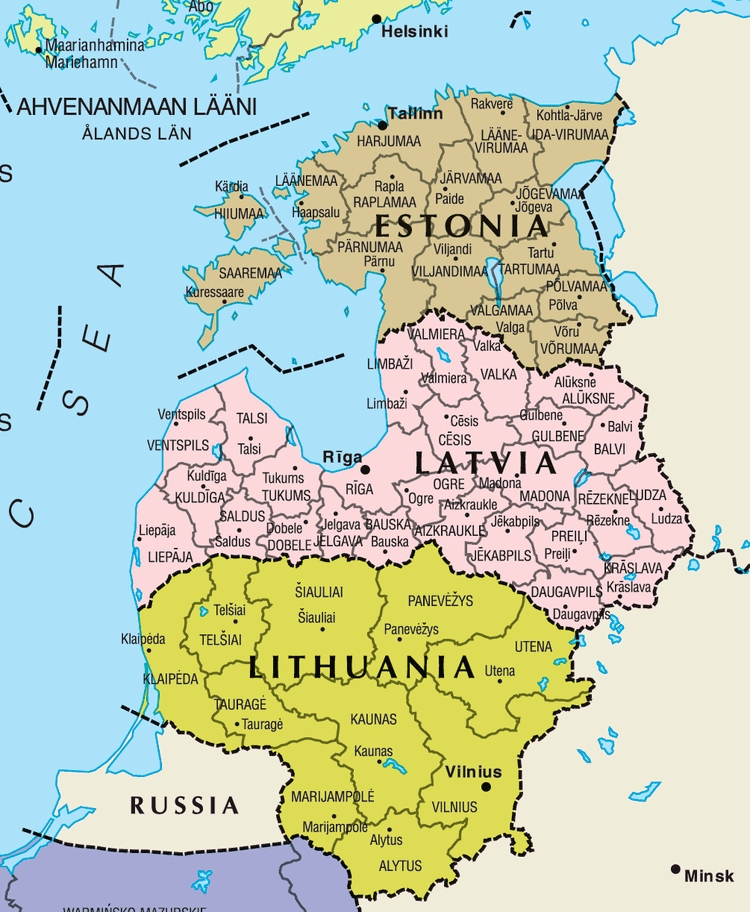
As the three Baltic Republics Estonia, Latvia and Lithuania regained their independence, Kaliningrad became geographically isolated from Russia. At first, this appeared to pose few real problems. However, by the end of the decade things were changing. In 1999, neighbouring Poland joined NATO, followed by Lithuania in March 2004. Two months later, in May 2004, they both joined the European Union. More to the point, there seemed to be little sign that this would have an unduly negative effect on Kaliningrad. Indeed, two years earlier the EU and Russia issued a joint statement acknowledging Kaliningrad's unique position. Recognising the developing strategic partnership between them, they pledged to make a special effort to address transit rights. However, and crucially, they accepted that any transit regime wouldn't be able to infringe on Lithuania's sovereign right to introduce controls or refuse entry to its territory.
Of course, any hopes for stable relations between Russia and the West have collapsed over the past decade, not least of all over Ukraine, and this has been particularly strongly felt in Kaliningrad. Following Russia's annexation of Crimea in 2014, EU sanctions on Russia have heavily affected the region's close trading ties with the EU - hitting key sectors such as food processing and tourism particularly hard. Meanwhile Kaliningrad became more isolated as Poland refused to renew an agreement granting its inhabitants easy access across the border.
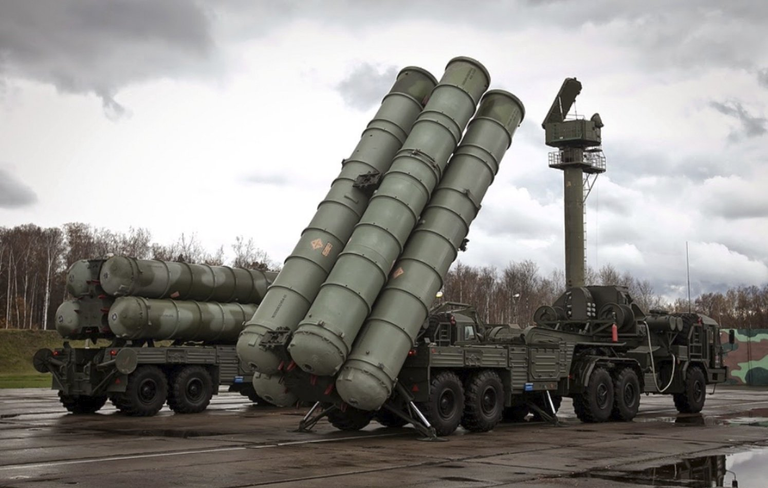
On top of all this, the region became steadily more militarised as Russia built up its forces in an area that most strategic analysts readily accept could become vital in any wider conflict between Russia and NATO. Since then, the situation has deteriorated even further with Russia's invasion of Ukraine. In early 2022, heightened tensions between Moscow and the West have led to even more military activity around Kaliningrad. As well as carrying out exercises, there have even been reports that Russia has bolstered its arsenal of nuclear missiles in the region. Meanwhile, the economic situation appears to be increasingly bleak. Indeed, this largely explains the seriousness of the latest crisis between Lithuania and Russia.
On 15 March 2022, the European Union announced a fourth package of restrictions on various Russian goods. This covered various iron and steel products as well as construction materials. As the 17 June deadline for the introduction of the restrictions passed, the Lithuanian government informed Moscow that, following consultations with the EU, it had been decided that these goods would be prevented from entering Lithuania on their way to Kaliningrad. Although early reports suggested that this would amount to a blanket transit ban on goods and people crossing Lithuania, the Lithuanian government denied this. It insisted that it would only cover the goods covered under the restrictions.
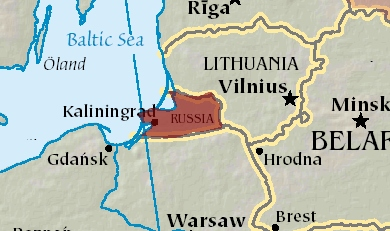
Nevertheless, Moscow was livid at the decision a move that Kaliningrad's governor insisted will cover around half of all imports into the region. Calling the announcement "unprecedented" and a "violation of international law", the Russian government insisted that Vilnius immediately rescind its decision. More to the point, Russia has also made it clear that if Lithuania doesn't reverse course then it reserves the right to take action to "defend its national interests". Since then, it's openly threatened Lithuania. Speaking during a visit to Kaliningrad, Nikolai Patrushev, the Secretary of the Russian State Security Council insisted that Russia will respond to such hostile actions in a way that will have "serious negative impact on the population of Lithuania". Meanwhile, it's clear that the EU stands fully behind Lithuania. Calls by Moscow for the EU to explain Lithuania's actions saw EU officials insist that Vilnius is merely implementing EU guidelines.
Naturally, all this raises very serious questions about what could happen next. In truth, it's put Russia in a difficult spot. So far, the Russian Foreign Ministry has reinforced the message that its retaliation will go beyond mere diplomatic responses. However, it's still unclear what this could entail - or what Russia could really do. Even expelling the ambassador seems pointless given that Lithuania has already said that it was withdrawing him anyway. And while some have suggested that Russia should even go as far as to rescind its recognition of Lithuania, it would mean little in real terms. Of course, the real fear is that it could include some sort of military action - perhaps even a move to create a land corridor to Kaliningrad.
This seems highly unlikely. Any attack on a nato state would be a dramatic and dangerous escalation. While NATO has avoided any direct involvement in Ukraine, it's been clear that a move against a member state would bring about swift retaliation. For this reason, it seems likely that Russia will have to look to other ways to respond. As well as the limited overt diplomatic and economic moves it could take, this is likely to include covert action, such as cyber and hybrid attacks on Lithuania and the EU. However, it would be wrong to think that there is little risk of any escalation. Although things might seem relatively calm now, the situation could well become more tense towards the end of the year. While Russia has said that it will resupply Kaliningrad by sea from St Petersburg for the meantime, this may well become harder as winter sets in. If Kaliningrad starts to really feel the pinch, Moscow may feel pressure to act more decisively.
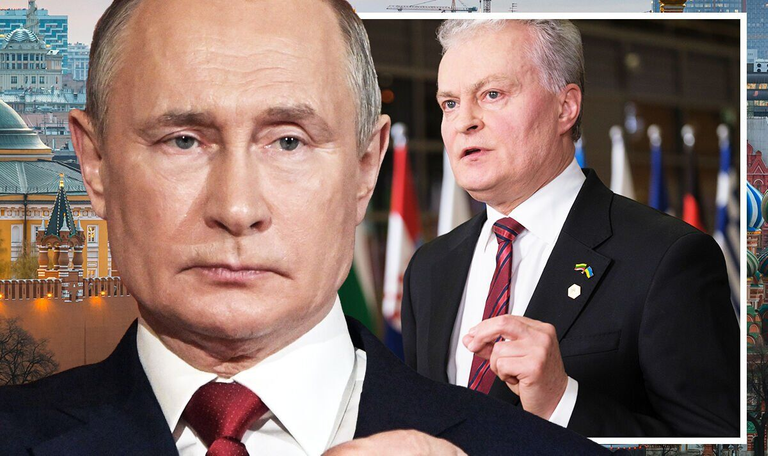
Meanwhile, they will inevitably be questions about what this means for the longer term future of Kaliningrad. There's little doubt that Moscow has become nervous in recent years about the emergence of a distinct identity in the region and that this may lead to some sort of separatist sentiment. For the moment, any move towards independence seems extremely unlikely. Even if public sentiment were to change, Russia still exerts tight control. But if it were to happen, it would pose a serious problem for Western policy makers.
Any decision to encourage such sentiment let alone recognise Kaliningrad or intervene to help the citizens - would be seen by Russia as a direct violation of its territorial integrity. This would almost certainly spark a strong response, especially given the region's military significance. As in Ukraine, but even more so, the West will have to take a back seat. In the meantime, the decision to impose restrictions on Russian goods crossing Lithuania into Kaliningrad has created a complex and potentially tense situation. While Russia can't do much to reinforce its sovereignty over its isolated exclave, the West can't be seen to undermine that sovereignty too much either. For this reason, their increasingly delicate relationship, strained over Ukraine, has just become that much more fragile.
Congratulations @cronos0! You have completed the following achievement on the Hive blockchain and have been rewarded with new badge(s):
You can view your badges on your board and compare yourself to others in the Ranking
If you no longer want to receive notifications, reply to this comment with the word
STOPCheck out the last post from @hivebuzz:
Support the HiveBuzz project. Vote for our proposal!
Russian State propaganda is saying they are just militarily debating upon how wide of a corridor through NATO territory they are going to own.
Which you are looking at NATO territory being overtly threatened. Again.
Russia is not capable of war with Nato. Not even Putin's nuclear arsenal can save Russia in a possible nato-ru conflict. They are just bluffing
I really don't want to see nuclear war however on the conventional side Russia is now not able to stand up to a further conflict after 36,000 dead....
Meanwhile having the massive resource list of volunteers Ukraine is just continuing intake and basic training before deployment of all these volunteers.